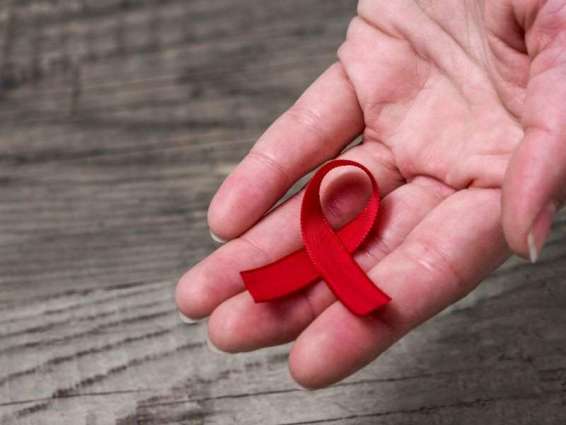World AIDS Day takes place on Saturday all around the world as it is annually held on December 1 to contribute to worldwide efforts in fighting against HIV and commemorate the victims of the virus.
MOSCOW (Pakistan Point News / Sputnik - 01st December, 2018) World AIDS Day takes place on Saturday all around the world as it is annually held on December 1 to contribute to worldwide efforts in fighting against HIV and commemorate the victims of the virus.
The cause was initiated by the World Health Organization (WHO) and received worldwide recognition after the United Nations General Assembly adopted a respective decision in 1988.
Human immunodeficiency virus (HIV) is a slowly progressive infectious disease. When multiplying, HIV infects the cells of the immune system - CD4 T lymphocytes (CD4 cells). As a result of HIV reproduction, the number of CD4 cells gradually decreases in an organism. HIV infection affects the body's defense mechanism, making it more vulnerable to other infections and tumors.
AIDS, an acquired immunodeficiency syndrome, is a serious condition which develops in an organism amid full-blown immunodeficiency, caused by a lingering HIV infection.
The first cases of this disease were detected in the late 1970s in Haiti, Sweden, Tanzania and the United States. The term AIDS was introduced by doctors in 1981. Two years later, French doctor Luc Montagnier and his colleagues were able to prove the existence of HIV.
For the first time World AIDS Day was held in 1988. The date was set in order to draw attention to HIV's spread, raise awareness and fight prejudice about HIV-infected people. Each year, World AIDS Day is held under different slogans reflecting current pressing issues.
The Joint United Nations Programme on HIV and AIDS (UNAIDS) coordinated World AIDS Day up until 2004. Since 2004, the World AIDS Campaign's Global Steering Committee in consultation with civil society, organizations and government agencies involved in addressing HIV has been selecting a theme for the day.
The theme for World AIDS Day 2018, which marks its 30th anniversary on December 1, is "Know your status." HIV testing is essential for increasing the availability of treatment and providing all people living with HIV the opportunity to lead a healthy and fulfilling life.
The red ribbon, a piece of silk ribbon folded in a special way, is the international symbol of awareness and support for people living with HIV. This emblem was created in April 1991 by US artist Frank Moore, who died of AIDS in 2002 at the age of 48.
In 2017, the global total of HIV-positive people was 36.9 million. About 35.1 million of these people are adults, and 1.8 million were children under the age of 15.
The leading countries in terms of the absolute number of people with HIV are South Africa, Nigeria, India, Mozambique, Kenya and others.
According to UNAIDS, a total of 77.3 million people have been infected with the immunodeficiency virus since the beginning of the epidemic in the 1980s. In 2017, their number was 1.8 million.
According to experts, there are now more than 1.1 million HIV-positive people in Russia. In 2017, the Russian Federal State Statistics Service (Rosstat) registered 104,400 new cases.
The life expectancy of an HIV-infected person on antiretroviral therapy does not differ from the life expectancy of a healthy person of the same age.
In 2017, UNAIDS released a report stating that the treatment had been made more accessible. Only 685,000 people living with HIV had access to antiretroviral treatment in 2000, and by June 2017 more than 20 million people had gained access to life-saving drugs.
The number of the HIV-infected people accessing antiretroviral therapy in Russia has recently increased from 39 percent to 50 percent.
In 2017, 940,000 people died from AIDS-related illnesses worldwide. At the same time, the mortality rate decreased by 51 percent compared to the peak in 2004, according to UNAIDS.
According to data for May 2018, 287,141 infected people have died in Russia since 1987, when the first death from HIV/AIDS was registered. About 24,000 of the diseased passed away in 2017.
The State Strategy to Combat the Spread of HIV through 2020 was approved in Russia in 2016.
The implementation of the strategy should decrease the number of new cases of HIV infection by 2020, increase the number of people getting tested for HIV and those who receive antiretroviral treatment, and reduce the occurrence of complications and death from HIV-related diseases (tuberculosis, hepatitis B and C) and AIDS.




